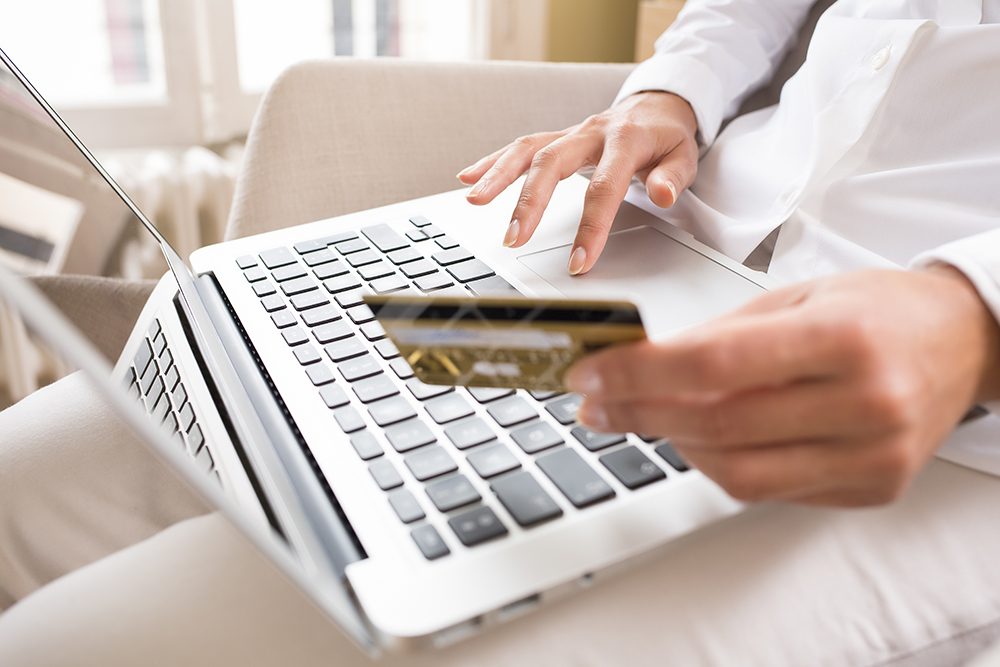
There's not much worse than finding out your debit card has been compromised or your bank account has been hacked. First, panic sets in as worst-case scenarios fill your head. Then, anger takes over. Who would do this, and why? Finally, as you pore over months of bank statements, sit on hold with your credit card company, and methodically change every single password, you are just plain annoyed.
You'd think that, as technology improves, it would be more difficult for hackers and criminals to access our private information. In reality, it probably is. According to many experts, it's the media coverage that makes it seem as if instances of hacking consumer data are on the rise. Still, while chip cards, 10-digit passwords, and fingerprint access really are helping keep people's information safe, no security measure can guarantee you won't be victimized. That's why we should all know what to do in the event it's your cash, your credit, and financial reputation on the line.
In the digital age, instant access to balances via online banking and banking apps mean we can track every transaction real time. But how many of us actually do? Many people don't even bother to balance their checkbooks at the end of a statement cycle anymore, much less check for continuity each time they use their debit cards. The irony is, even with all of these tools at our fingertips, our tendency not to use them may actually be helping the hackers.
How is that so? Many hackers start out by testing both your account functionality and your ability to detect fraudulent activity with small charges. If the criminal can get by with these small charges without alerting the account holder or the bank, they can then work their way up to more substantial charges or even clear out your accounts entirely.
So, pay attention and use the tools your bank or credit card companies offer to help you track your account activity. Many banks will text you each time a transaction occurs. If this seems like too much oversight, sign up to receive a daily summary of transactions via email instead. At minimum, you should get notified when your balance dips below a certain threshold or a purchase exceeds a preset amount. Most importantly, whatever alerts you sign up for, pay attention to them. Every email and text message alert available will be useless if you just delete them.
Many credit card companies like American Express & many consumer finance portals like CreditKarma & WalletHub allow consumers to quickly access their credit scores for free. AnnualCreditReport.com is the official free credit reporting website recommended by the United States Federal Trade Commisssion.
If paying attention is half the battle when it comes to your financial security, acting quickly is the other half. In the event you notice any discrepancies in any of your accounts, you should call your bank or credit card company immediately. The sooner you notify the financial institution, the better off you will be. If your card has been compromised, the bank will cancel it and provide you with a new one to prevent additional fraudulent activity. Timely reporting of suspicious activity will also help ensure you aren't liable for those charges. While most credit and debit card users are protected, rules vary by financial institution. It's important to know what those rules are in the event you become a victim.
In general credit cards typical offer more protections on them than debit cards, so it is best to use a credit card exclusively online & only use your debit card at ATMs. Even stores like Target have been hacked, with information on up to 70 million consumers stolen.

In cases where you've used your card at a retailer who has been hacked, it commonly works the other way around. Your bank notifies you that your information has been compromised, and sends you a new debit or credit card as a precaution. In this case, stop using your old card, safely discard it, and activate your new one immediately.
After you've called your financial institution, the next thing you must do is reset your passwords. Start with the accounts that were impacted, but don't stop there. Be sure to change any accounts of any kind that use the same or similar passwords. And if it's been awhile since you last changed the rest of your passwords, you might as well take the time to update those too.
Passwords are either the best or worst thing to happen to internet security, depending on who you ask. For many of us, creating a strong password that is also easy to remember can seem nearly impossible. And since you're supposed to have a different one for every site you use, it's easy to see why we default to the easy-to-remember combination of our pets' names and the year we were born or, even worse, using the same password for everything.

Still, a strong password is the first line of defense against hacking. If you really want to protect yourself and your bank account, take the time to find a system that works for you. From using passages from your favorite book to replacing letters with special characters to repeating short passwords to make long ones, there is, in fact, a balance of strong and easy-to-remember that will keep you both safe and sane.
If you have many online accounts the only way to keep yourself protected is to never use the same password across multiple websites.
Hackers often use passwords from one account which was hacked to try to log into other accounts associated with the same email address. Using separate passwords across each web service lowers your risk of a minor account hack leading to problems with your bank.
Tools like RoboForm & 1Password allow you to generate & save random passwords for each site, while requiring you to only remember a single master unlock code to decrypt all your stored passwords on your computer. Be aware that if these services get hacked then you may need to switch services and change all your passwords. Those who were using easy master unlock codes to lock their LastPass accounts may have been compromised in 2015.
HaveIBeenPwned.com allows you to look up your email to see if your email was found in any of the leaked databases from major site hacks which had significant public coverage. Not all hacks are listed in a searchable database on third party sites. Some notable horrific data breaches include:
Now that our web browsers have the ability to save all those long, hard-to-remember passwords, we are good to go, right?
Maybe not. In some cases, hackers use your computer or even an unassuming smartphone app to access your personal data. If that's the case, you can't stop at the cloud when it comes to re-establishing your online safety. You have to address your hardware as well.

Many free apps in the official app stores are plagued with malware to drive botnets and DDoS attacks.
Invest in a good antivirus software, and use it on your desktop, laptop, smartphone, and tablet. (In other words, install it anywhere you shop, bank, or enter your private information.) According to experts, the free versions don't work as well as the ones you pay for. Some may even be malware themselves. Complete your scheduled scans on each of your devices, and always update to the latest operating system, as these updates usually include enhanced security measures. Also make sure you use a password and a lock code.
Furthermore, check your internet usage habits. Be aware of what type of network you are on (private or public) and what type of information you are sending and receiving. Only log in to your private accounts on secure, private networks. Don't allow other devices on public networks to share data. Also, use two-step verification processes where available. These seemingly small changes to how you use your devices can go a long way to ensuring your personal information remains private.

The truth of the matter is, our attitudes toward accessing and sharing personal information online have changed dramatically in the past couple of decades. When online shopping, banking, and billpay first became options, people were wary of entering their credit card information online at all. Now we're annoyed when those same 16 digits don't pop up in our web browser automatically — along with our full name, billing, and shipping addresses. For millennials who have never even written or cashed a physical check, sharing almost everything online is second nature.
While paying with our phones and our fingerprints is both convenient and secure, it might be time to rein it in a little when it comes to our financial security, but don't worry. You don't need to go off the grid and start paying for everything with cash.
But, while we should continue to enjoy the ease and convenience of online banking, mobile apps, and smart browsers, we can't become too lackadaisical when it comes to protecting ourselves. Like with most aspects of a healthy life, it's about finding balance.